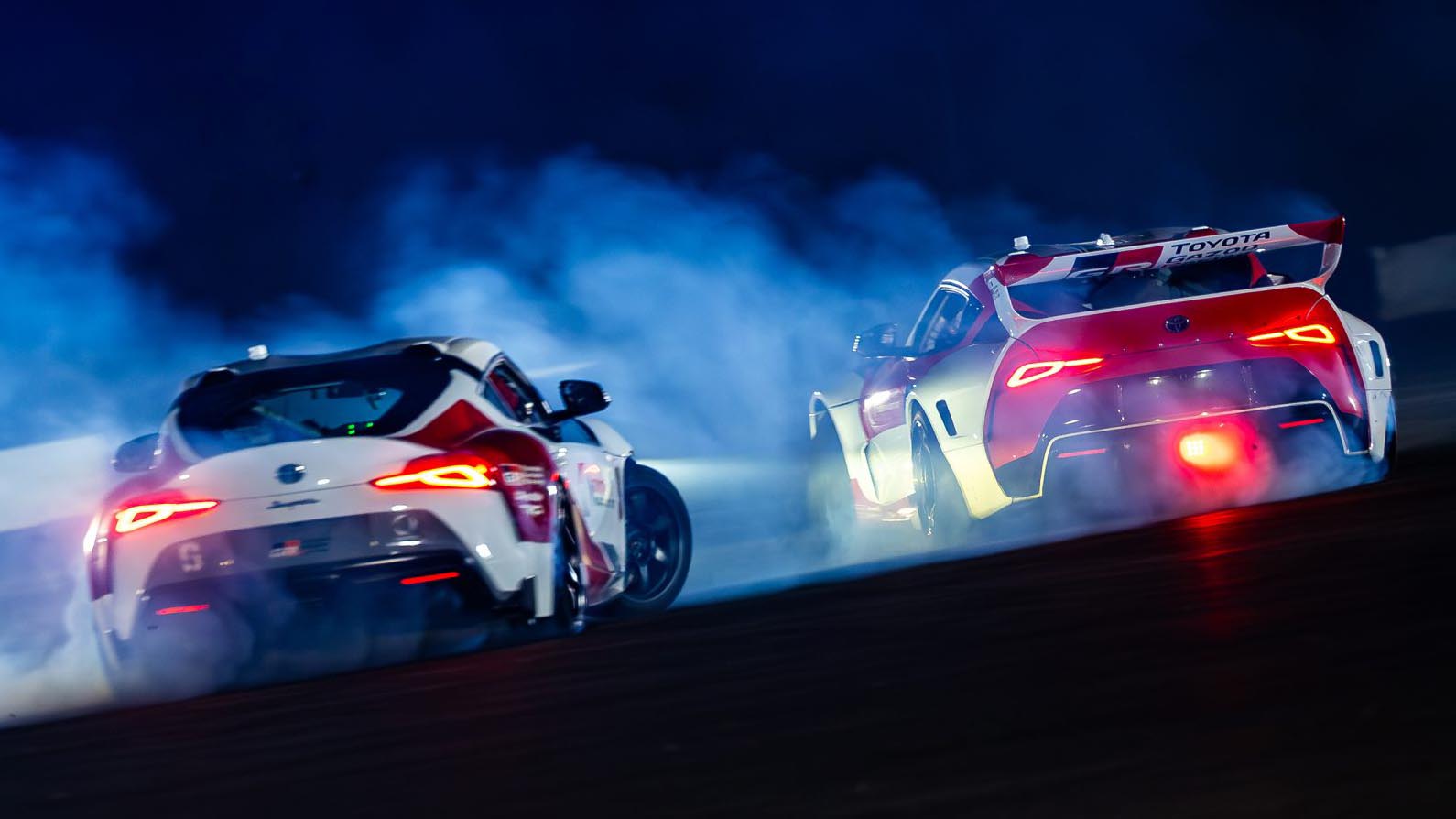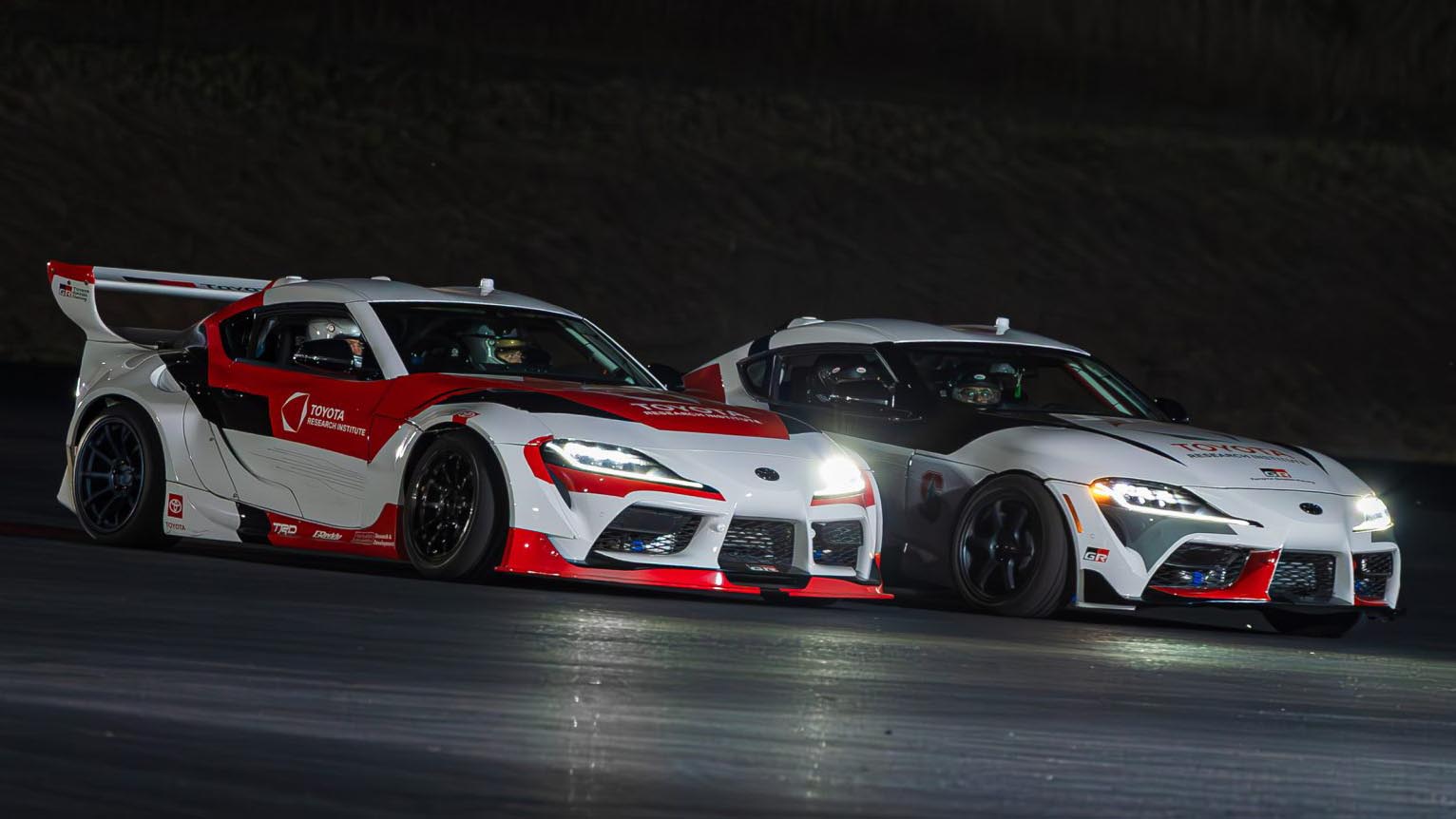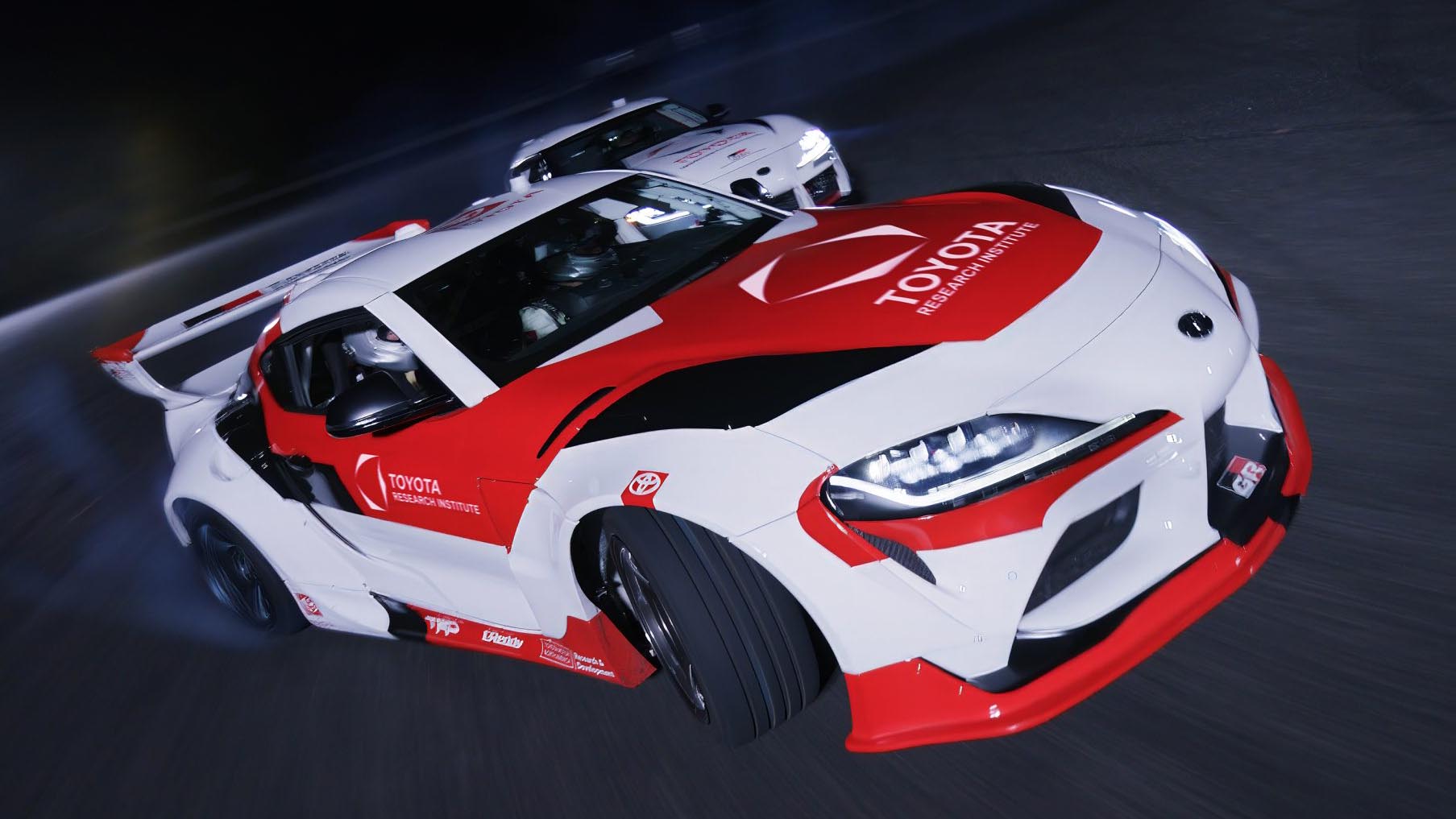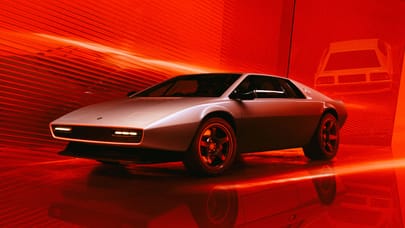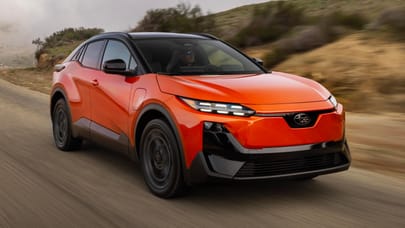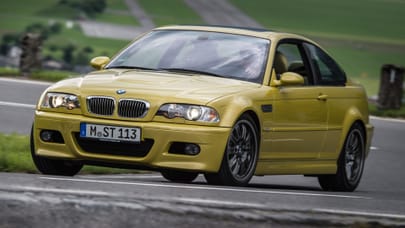
Toyota has completed the world’s first autonomous twin-drift in a pair of Supras
Apparently it yields positive impacts on the development of future terrain technology, but mostly: look! A self-driving twin-drift!
Toyota has conducted the world’s first autonomous twin drift in, ahem, tandem with Stanford University. It took around seven years of collaborative research to pull this off. One hell of a dissertation, that.
The cars used were a pair of modified GR Supras, filled with a suite of tech systems - like the ‘neural network’ tyre, which is basically a sort of intelligent cyborg in a rubberised form that can learn from experience and sounds completely fine and not at all terrifying - and conspicuously unfilled with human.
Aside from changes to the Supra's powertrain, transmission and suspension, both were fitted with an array of computers and sensors that would automatically control the steering, throttle, brakes and general inputs, while stable control mechanisms were also thrown in to allow for safe, repeatable runs.
On to the runs themselves: the cars used a special technique called ‘Nonlinear Model Predictive Control’ (NMPC), which means the computers fitted have been assigned various mathematical calculations to allow them to follow a specific route or path. A very fancy of way of saying 'send it', basically.
Indeed, the computers are so advanced that they can deal with up to 50 calculations per second, which means that, over time, their general rate of accuracy is claimed to be improved.
But apart from being a pretty cool ‘look what I worked on’ pick-up line at a bar, the experiment has also taught participants important information about how vehicle terrain response can be refined during wintry conditions. Why? Because a lack of friction when drifting can be comparable to sliding on ice.
Avinash Balachandran, the vice president of Toyota’s Research Institute, said: “Utilising the latest tools in AI, we can drift two cars in tandem autonomously. It is the most complex manoeuvre in motorsports, and reaching this milestone with autonomy means we can control cars dynamically at the extremes. This has far-reaching implications for building advanced safety systems into future automobiles."
Top Gear
Newsletter
Thank you for subscribing to our newsletter. Look out for your regular round-up of news, reviews and offers in your inbox.
Get all the latest news, reviews and exclusives, direct to your inbox.




